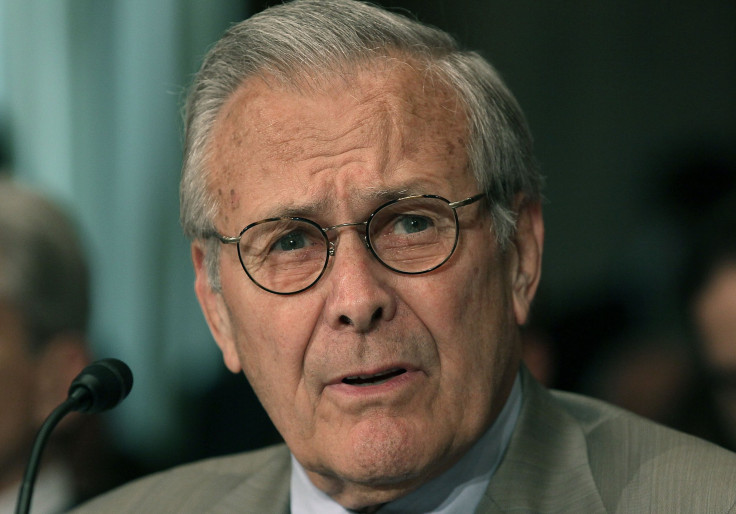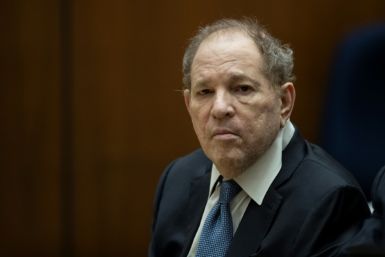Former Defense Secretary Donald Rumsfeld Dead At 88

Donald Rumsfeld, who served as President George W. Bush's defense secretary during the 2003 Iraq War, died Wednesday in Taos, New Mexico. He was 88.
The cause of death was multiple myeloma.
Rumsfeld had served as President Gerald Ford's secretary of defense from November 1975 to January 1977, making him both the youngest, at age 43, and the oldest, at age 74, to hold the position.
Rumsfeld worked under four presidents. In 1988, he sought the Republican presidential nomination but withdrew before the primaries.
Rumsfeld faced fierce criticism during the Iraq War. During his tenure, there were several controversies, which included "enhanced interrogation" tactics, as well as atrocities at the Abu Ghraib prison in Iraq. In 2011, Rumsfeld said the country and the Pentagon probably "would've been better off" if he had left office after the Abu Ghraib scandal in 2004.
But Rumsfeld did not admit to missteps in Iraq War and had voiced his disapproval for a U.S. military pullout despite also acknowledging that building a democracy would be unrealistic.
“I’m not one who thinks that our particular template of democracy is appropriate for other countries at every moment of their histories," Rumsfeld told the New York Times in 2015. "The idea that we could fashion a democracy in Iraq seemed to me unrealistic. I was concerned about it when I first heard those words.”
Rumsfeld defended his handling of the Afghanistan and Iraq wars, writing “If you are not criticized, you may not be doing much," in the book "Rumsfeld's Rules."
“[Rumsfeld's] style of leadership did not always serve his own purposes: He bruised people and made personal enemies, who were eager to strike back at him and try to discredit his work,” wrote Doug Feith, Rumsfeld’s senior civilian policy adviser at the Pentagon, in his 2009 book, "War and Decision: Inside the Pentagon at the Dawn of the War on Terrorism."
Rumsfeld was born in Chicago and graduated from Princeton University. He attended Georgetown University Law Center but did not graduate. Rumsfeld also served as a Republican congressman from Illinois beginning in 1961 and resigned from his position to join the Nixon White House in 1969.
The Rumsfeld family said in a statement that “he was surrounded by his family in his beloved Taos, New Mexico."
He is survived by his wife Joyce, three children, and seven grandchildren.






